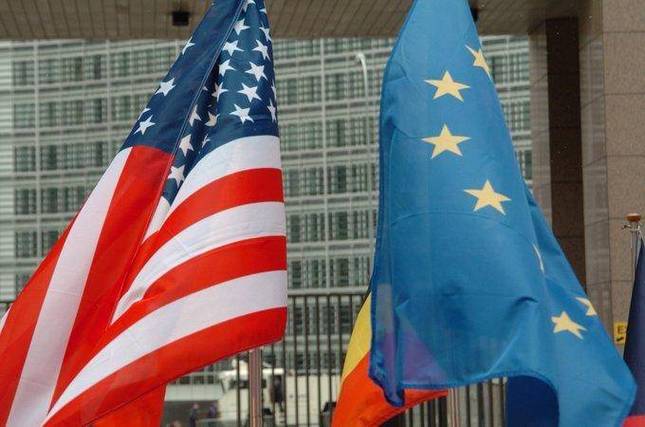
Differing Opinions Within the EU on How to Respond to US Tariffs
The escalation of the trade dispute with the United States was the primary topic at a European Union meeting in Brussels on Monday. According to Germany’s Der Spiegel on July 14th, EU trade ministers were discussing how to respond to President Trump’s proposed 30% tariff on EU imports. A key concern is whether EU member states will unanimously support European Commission President Ursula von der Leyen’s stance on the matter.
On July 13, Brussels postponed retaliatory tariffs on US steel and aluminum, originally scheduled to take effect on July 14. Reuters believes the EU still hopes to achieve a better outcome through negotiations and avoid a tit-for-tat trade war.
On August 12, US President Trump unexpectedly announced that 30% tariffs would be imposed on European Union and Mexican goods imported into the US, effective August 1. On August 13, European Commission President Ursula von der Leyen stated that in the face of the 30% US tariffs, the EU would maintain a dual-track strategy: continuing negotiations while preparing retaliatory measures. “We have always been very clear that we prefer to resolve this through negotiation. That remains the case, and we will use the available time,” von der Leyen added, noting that the EU would extend the suspension of its retaliatory tariffs on the US until early August.
According to public reports, the EU approved retaliatory tariffs of 25% on €21 billion worth of US goods in April, but delayed the implementation until July 14 to allow time for trade negotiations. With the July 14 deadline approaching, von der Leyen announced a further postponement of the measures until August 1.
Is further concession the correct course of action? I have my doubts.” Bernd Lange, Chair of the European Parliament’s Committee on International Trade, voiced this question on social media. In an interview with Brandenburg Broadcasting Corporation in Berlin on the 14th, Lange called on the EU to clearly oppose Trump in the tariff dispute with the United States. He stated that these tariffs are unreasonable and arbitrary. Just as negotiations were underway, Trump suddenly sent a letter regarding tariffs. “This was nothing short of a slap in the face,” Lange argued, asserting that a strong stance is certainly effective: “I believe we must clearly demonstrate to Mr. Trump the extent of our economic strength. These tariffs are unreasonable. We will not allow ourselves to be blackmailed.”
Reuters reports that responding to the Trump administration’s tariff pronouncements and actions may test the unity of EU member states. Last Saturday, French President Macron stated that the European Commission needs “to demonstrate the EU’s determination to resolutely defend European interests” more than ever before and should mobilize all tools, including the anti-coercion instrument.
However, during weekend discussions, the German government and several other countries argued for temporarily shelving the measure to avoid complicating negotiations with Washington. On the 14th, German broadcaster ARD reported that Chancellor Merz, in an interview, warned that a protracted EU-US tariff dispute would harm the German economy and severely impact German exports, and that he was committed to finding a solution.
German Vice Chancellor and Finance Minister Lars Klingbeil told the Süddeutsche Zeitung on Sunday that “If a fair solution cannot be reached through negotiations, then we must take resolute countermeasures to protect European jobs and businesses.” He added that countermeasures must be “continuously prepared,” but he did not call for immediate implementation: “Our hand remains outstretched, but we will not cooperate on everything.”